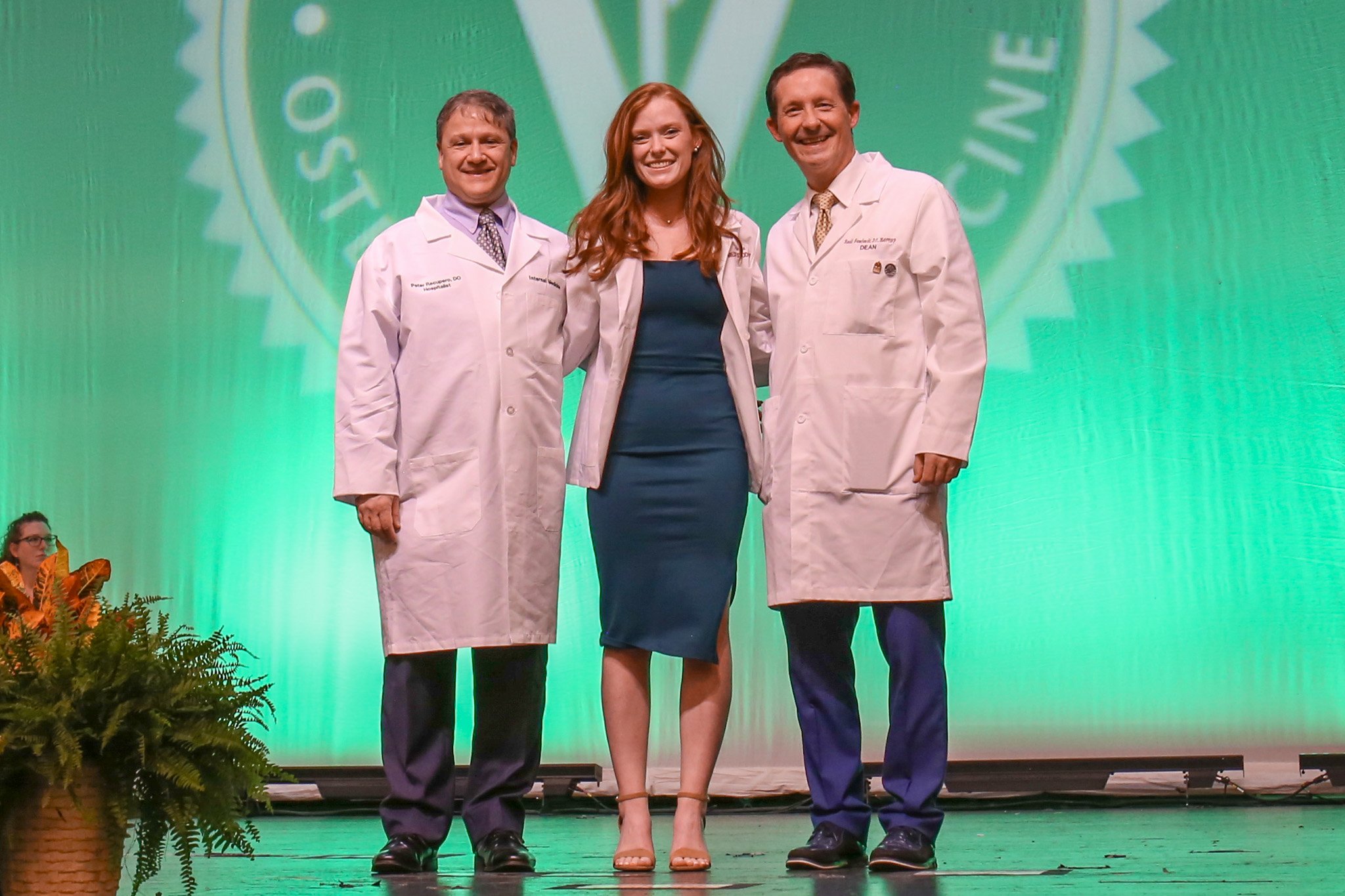Three Ways Chatham Can Prepare You for Medical School
Hailey Dunster, MABS ’22, poses onstage at her white coat ceremony at VCOM—Virginia. (Courtesy Hailey Dunster)
Pierette Appasamy knows the challenges that come with applying to medical school. As the pre-med advisor at Chatham University, Appasamy helps students fill out applications, plan their academics, and write personal essays, all of which helps them stand out in a competitive academic environment.
In just the last several years, Chatham students have been accepted to medical schools at the University of Pittsburgh, Drexel University, Boston University, and more.
“I worked with the pre-med advisory services from the moment I started at Chatham,” said Hailey Dunster, MABS ’22, who’s now working towards her Doctor of Osteopathic Medicine degree at the Virginia campus of the Edward Via College of Osteopathic Medicine (VCOM). “I knew that my end goal was medical school and that they would be able to guide me through the application process and provide me with resources.”
Appasamy said it’s ideal for students to interface with the office as soon as possible. “Getting involved early helps plan out their academic trajectory,” she said. “They need research, clinical, leadership experiences to talk about. Those things need some preparation.”
Below are a few ways Chatham’s pre-med advisory services can help students plan their path to medical school.
One-on-one advising
Students often say they come to Chatham because of the individual focus afforded by small class sizes, and those seeking out pre-med advice get the same focus. Advisors like Appasamy work one-on-one with approximately 20 students per year. At larger institutions, such advisors could be responsible for thousands of students.
“The Pre-Med advising is a great resource to utilize,” Dunster said. “They know the ins and outs of the medical school application process and how to make yourself stand out.”
Unlike a general academic advisor, who focuses on students’ major classes, pre-med advisors add a deeper focus on topics like planning a gap year or passing the MCAT. This way, students know they are taking the pre-requisite courses for medical school and pursuing important opportunities, such as clubs, research, volunteer positions, and shadowing—typical experiences a med school applicant might have under their belt.
Personal statement writing help
In addition to guiding students through coursework and extracurriculars, pre-med advisors can also help students craft their personal statements. These first-person essays are crucial to standing above the crowd of applicants and showing a glimpse of a student’s personality.
“I spend a lot of time working with students on their personal statements,” Appasamy said.
“I think Dr. Appasamy was extremely helpful,” Dunster said. “She read every personal statement draft, assisted me in interview preparation, and allowed me to earn a committee letter. All of these were instrumental in my acceptance to medical school, and I couldn't have done it without her.”
Committee letters
In addition to the preparation and guidance the program gave Dunster, Chatham’s Health Professions Advising Committee also wrote a letter for her that supplemented her required letters of recommendation. Dunster said obtaining this letter was the reason she sought out the committee in the first place, and it helped give her application an edge when she applied to medical schools.
“They know the ins and outs of the medical school application process and how to make yourself stand out,” Dunster said of the committee. “When you are ready to apply, they will make sure your application is a strong representation of you and help you decide what schools may be a good fit for you.”
Learn more about how Chatham University’s pre-med advising program can help prepare students for medical school, or explore the Master of Biomedical Studies degree.

